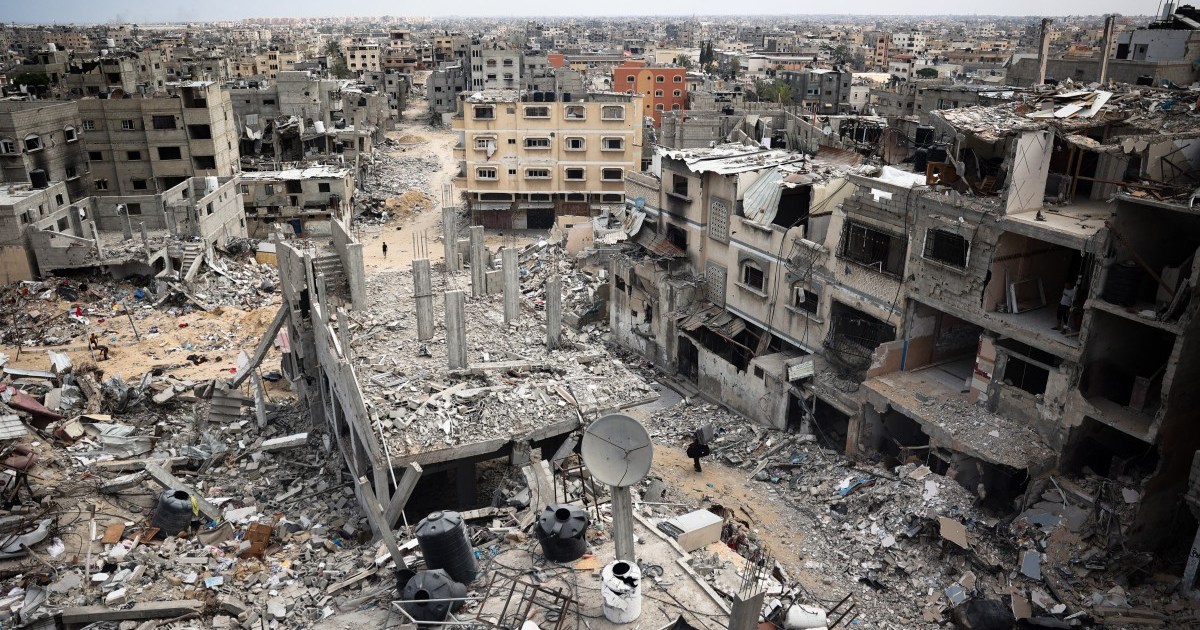Antonio Guterres says he fears war in Gaza ‘will worsen exponentially’ without a truce as Israel’s Rafah assault looms.
United Nations chief Antonio Guterres has renewed his calls for a ceasefire in the Gaza Strip as a Hamas delegation is set to visit the Egyptian capital, Cairo, soon for renewed indirect talks.
“For the sake of the people of Gaza, the hostages & their families, and the region & the wider world – I strongly encourage the government of Israel & Hamas leadership to reach an agreement in their negotiations,” the secretary-general said in a post on X on Friday.
The UN chief added that he fears “the war will worsen exponentially” without a ceasefire.
For the sake of the people of Gaza, the hostages & their families, and the region & the wider world – I strongly encourage the government of Israel & Hamas leadership to reach an agreement in their negotiations.
Without that, I fear the war will worsen exponentially.
— António Guterres (@antonioguterres) May 3, 2024
His comments come as CIA Director William Burns arrived in Cairo for meetings, the Reuters news agency reported, citing an Egyptian security source and three sources at Cairo airport.
Egypt, along with Qatar and the United States, has been leading efforts to mediate between Israel and Hamas to broker a deal for a ceasefire and captive release in Gaza.
A day earlier, Hamas chief Ismail Haniyeh said he discussed the latest Israeli proposal for a truce with Egyptian and Qatari mediators.
Hamas confirmed on Thursday that talks are scheduled to take place in the coming days with the aim of ending the war on Gaza.
This week, the Palestinian group said it had received Israel’s latest position and would study it before submitting a reply.
Both US Secretary of State Antony Blinken and British Foreign Secretary David Cameron urged Hamas to accept the deal describing it as a “generous” offer. It includes a halt in fighting for 40 days and the exchange of dozens of Israeli captives for many more Palestinian prisoners.
But Hamas has stressed that it would not accept an agreement that does not lead to a permanent ceasefire, the withdrawal of Israeli forces from Gaza and the unhindered return of displaced families to their homes.
Looming Rafah incursion
Amid the push for a ceasefire, Jens Laerke, spokesman for the UN Office for the Coordination of Humanitarian Affairs, voiced concern for civilians in the besieged enclave.
Laerke warned that a looming Israeli ground offensive into Gaza’s southern city of Rafah would put the lives of hundreds of thousands of Palestinians there at risk.
“It could be a slaughter of civilians and an incredible blow to the humanitarian operation in the entire Strip because it is run primarily out of Rafah,” Laerke said at a Geneva news briefing on Friday.
Rafah has been the main gateway for aid into Gaza, which has been under a severe Israeli blockade that has brought the territory to the verge of famine.
Aid operations conducted out of Rafah include medical clinics and food distribution points, such as centres for malnourished children, Laerke said.
More than 1.5 displaced Palestinians are sheltering in Rafah, which is enduring deadly Israeli attacks on a daily basis.
At least 34,622 Palestinians have been killed and 77,867 wounded in the Israeli assault on Gaza since October.
Its offensive has driven more than 80 percent of the territory’s 2.3 million people from their homes. Most displaced people have moved to the south of the territory and ended up in Rafah near the border with Egypt.
Countries around the world have urged Israel against invading Rafah, warning of disastrous humanitarian consequences. But Israeli Prime Minister Benjamin Netanyahu has promised to launch a full scale attack against the city regardless of the outcome of the ceasefire talks.
This week, he said Israel will destroy Hamas’s remaining battalions in Rafah “with or without a deal” so Israel can achieve “total victory” in the war.
In November during a weeklong truce, dozens of captives were released by Palestinian groups in Gaza in exchange for hundreds of Palestinian prisoners held in Israeli jails. But Israeli forces renewed their offensive after the ceasefire expired.
Check out our Latest News and Follow us at Facebook
Original Source

